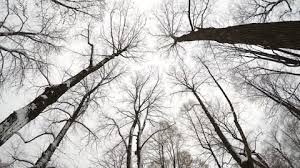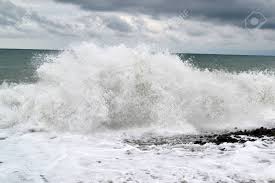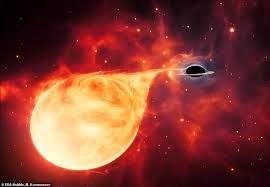They are Autumn Trees Without Fruit,
Wild Waves of the Sea Foaming Up Their Shame,
Wandering Stars
Jude 12d-e and 13; Second Peter 2:17b
They are autumn trees without fruit, wild waves of the sea foaming up their shame, wandering stars DIG: How are the false teachers twice dead? What is the second death (see my commentary on Revelation, to see link click Fp – The Lake of Fire is the Second Death)? How are believers different? What do the apostates produce? What is their sure future? How long will it last? What should our attitude be regarding them?
REFLECT: How can you recognize these apostates? Where do see them? On the internet? On television? On the radio? In your community? In your neighborhood? Where you worship? How should you react to them? Do you have a “Ten Most Wanted” list of lost people you are praying for? When could you start?
They are like autumn trees, without fruit and uprooted, twice dead (Jude 12d-e). They are like wild waves of the sea, foaming up their shame (Jude 13a). They are like wandering stars. God has reserved a place for them in the deepest, blackest darkness forever (Jude 13b NIV and Second Peter 2:17b GNT)!
In many of His parables, Yeshua used natural phenomena as object lessons to illustrate spiritual truth (see my commentary on The Life of Christ, to see link click Et – The Parable of the Soils; Ev – The Parable of the Wheat and the Weeds; Fa – The Parable of the Weeds Explained; the Kingdom parables Ex – The Parable of the Leaven; Fb – The Parable of the Hidden Treasure; Fc – The Parable of the Pearl; and Hs – The Parable of the Lost Sheep). This eighth triad is made up of three similes. These false teachers are like autumn trees, wild waves of the sea, and wandering stars.

First, they are like autumn trees, without fruit and uprooted, twice dead (12d-e). Autumn is the season when farmers and gardeners expect to harvest the final crops of the year. If nothing comes, they must endure disappointment and hardship through the winter. The next spring they can begin the painstaking process of fertilizing, planting, watering and waiting for the crop to mature. With this in mind, the phrase autumn trees without fruit pictures the disappointing reality of a barren harvest. These apostates had barren lives, when they should have been fruitful. They were like the barren fig tree in Luke 13:6-9, they had forgotten Jesus’ words: By their fruit you will recognize them (Matthew 7:20).
He called them twice dead. The equivalent terms for uprooted and twice dead in the Greek occur in the reverse order, with the phrase twice dead coming first. It may be best to preserve this order if we are to understand Jude’s point.78 First, they are fruitless because there is no visible fruit of the Spirit present in their lives; second, they are uprooted, dead to the very core. The uprooting of trees is a favorite metaphor of judgment in the TaNaKh (Psalm 52:5; Proverbs 2:22). They are like trees that have been cut down and the stump pulled out of the ground, disconnected from the life-giving source of water and nutrients in the soil. As Jesus said of the Pharisees: Every plant that My heavenly Father has not planted will be uprooted (Matthew 15:13). The apostates produce no life-changing fruit, neither in themselves nor in others.79
Believers, on the other hand, are fruitful in every good work because they are rooted and grounded in Yeshua Messiah. Blessed is the one who trusts in the Lord, whose confidence is in Him. They will be like a tree planted by the water that sends out its roots by the stream. It does not fear when heat comes; its leaves are always green. It has no worries in a year of drought and never fails to bear fruit (Jeremiah 17:7-8).
He is the tree of life (see my commentary on Revelation Fw – Then The Angel Showed Me the River of the Water of Life, Clear as Crystal); however, the false teachers are trees of death.

Second, they are like wild waves of the sea, foaming up their shame (Jude 13a). The Bible often uses the sea as a symbol for those who do not know God. They are never at peace, and are always characterized by restlessness. The word shame in the Greek is plural; Jude was thinking of the “shameful deeds” committed by the false teachers. Once again the TaNaKh was probably in Jude’s mind: But the wicked are like the restless sea – unable to be still, it’s waters toss up mud and dirt. There is no shalom for the wicked (Isaiah 57:20-21 CJB).
This is a snapshot of what the apostates produce. They make great claims, but are essentially useless (see Ac – The Book of Jude from a Jewish Perspective: Purpose). With all their empty words and self-serving busywork, they are like wild waves. Jude wrote of the uncontrolled wildness of the waves of people who have abandoned the truth, revealing their own shamefulness and helplessness as they vainly foam against those who stand firmly on the Rock. The Church will continue to stand until all the wild waves of apostasy have battered their souls against the Truth for the last time, then the Scriptures will be fulfilled, and there will no longer be any sea (Revelation 21:1).80
ADONAI leads believers beside quiet waters (Psalm 23:2b); but the imposters are like the restless and troubled sea (Isaiah 57:20).

Third, they are like wandering stars. God has reserved a place for them in the deepest, blackest darkness forever (Jude 13b NIV and Second Peter 2:17b GNT)! Jude points to shooting stars that fall out of the sky and then are engulfed in darkness. For this simile Jude once again goes to a pseudepigraphal book, as he had done earlier with the Assumption of Moses (see Ao – Michael Disputed with the Devil about the Body of Moses). In First Enoch (xviii. 14ff), the stars are sometimes identified with the angels, and there is a picture of the fate of the stars, which, being disobedient to God, left their appointed orbit and were destroyed. In his journey through the earth, Enoch came to a place where he saw “neither the high heavens, nor the firmly founded earth, but a desert place, prepared and terrible.” He goes on, “And there I saw seven stars of heaven bound on it together, like great mountains and burning like fire.” Then Enoch said, “For what sin have they been bound, and why have they been thrown here?” And Uriel, one of the holy angels who was with me and led me, spoke to me and said, “Enoch, about who do you ask? About whom do you inquire and ask and care? These are some of the stars that transgressed the command of ADONAI ‘Elyon, and they have been bound here until ten thousand ages are completed, (literally into ages or forever) the number of the days of their sin” (xxi. 2, 6, 10).81 Jude’s use of First Enoch verifies only that this one example of the fallen angels is a true statement. However, he is not verifying the truth of First Enoch as a whole.
There will never be anything but this awful darkness, the very blackest of darkness, for these apostates. As eternity for the saved will be continuous joy and contentment in the Sh’khinah glory of ADONAI, eternity for the lost will be continuous despair and doom in the blackest darkness.82 This suggests that Jude was thinking of the doom of the fallen angels (see Ak – The Angels Did Not Keep Their Positions of Authority), when he wrote of the doom reserved for these wandering stars. This conclusion is strengthened by the fact that Jude goes on to quote Enoch in the very next verse (see At – Enoch, the Seventh Generation from Adam, also Prophesied about These People).
This is one of several descriptions of the Lake of Fire – the place of utter darkness. This is somewhat paradoxical because, normally, fire provides light, but in the case of the Lake of Fire, the fire is there only for torment. It will not produce light of any kind. Those in the Lake of Fire will be tortured in a state of perpetual darkness. Therefore, these stars cannot be literal stars because they end up in the Lake of Fire. The word star, when used symbolically, usually represents an angel. So these false teachers are like fallen angels destined for the Lake of Fire. There can be no doubt that for both the apostate teachers and the apostate angels, God has reserved a place for them in the deepest, blackest darkness forever.83
Jesus Christ is the bright Morning Star proclaiming the coming day (see my commentary on Revelation Gb – I AM the Root of the Offspring of David, and the Bright Morning Star); but the rebels are wandering stars foreshadowing a night of eternal darkness.
The Bible tells us that this punishment will last forever. You would think people would take that at face value and believe that forever means forever (everlasting chains in Jude 6; also see Matthew 25:41; Mark 9:43; Luke 16:22-24; Revelation 14:9-11). However, there are unbelievers and believers alike that have tried to get around that language by arguing for annihilationism. According to this interpretation, the wicked will simply be annihilated at death or shortly after undergoing a brief period of punishment after death. The strongest argument for this view actually appears in Jude: the use of the word destroy when referring to the destiny of the wicked (Jude 5 and 10; First Corinthians 3:17; Philippians 3:19; 1 Thessalonians 5:3; Second Thessalonians 1:9; Second Peter 2:1, 3 and 3:7; Hebrews 10:39). Defenders of this view argue that it is more compatible with the love and justice of ADONAI. Once again repeating the age-old mistake of seeing a mean and vindictive God of the TaNaKh, and a loving and compassionate God of the B’rit Chadashah.
People can believe anything they want, but the problem with annihilationism is that it contradicts the teaching of the Bible. Catholics can say that Mary was sinless, a virgin her whole life and ascended to heaven just like Jesus did – but how does that measure up against the Bible? The Seventh-Day Adventist can say, with their doctrine of Investigative Judgment, that Yeshua can forgive sin, but only Satan can blot out sin – but how does that square with Scripture? Jehovah’s Witnesses and the Hebrew Roots Movement can say that the Holy Spirit is nothing more than electricity – but what does the Bible have to say about that? It is best to be like the Bereans who received the Message with great eagerness and examined the Scriptures every day to see if what Paul said was true (Acts 17:11).
The strongest argument in favor of the traditional view is the language of eternity that is compared to hell. Context is crucial in the interpretation of any particular verse of Scripture. And it is true that forever can sometimes mean for a long time, or for a dispensation. But convincing evidence that eternal punishment means punishment forever comes from verses like Matthew 25:41, where eternal fire is in the same context as eternal life in Matthew 25:46.84 If the one (eternal life) is unending, then the other (eternal fire) must be also (see the commentary on Proverbs Ad – Sh’ol, or Hell).
Hell is a real place. Yeshua Himself said: I tell you, my friends, do not be afraid of those who kill the body and after that can do no more. But I will show you whom you should fear: Fear Him who, after the killing of the body, has power to throw you into hell. Yes, I tell you, fear Him (Luke 12:4-5; also see Matthew 10:28). But the problem today is that many people want to avoid the subject altogether. It doesn’t seem to fit well into the culture of “modern life” with its focus on the love of God and the preoccupation with helping people to “feel good” about themselves. Yet faithfulness to the biblical message and a balanced view of ADONAI as both loving and holy requires that we maintain and proclaim the reality of hell.
Jude, as we have seen, minces no words when he talks about the fate of apostate teachers. They will be destroyed (Jude 10-11), they will suffer the punishment of eternal fire (Jude 7), and the blackest darkness has been reserved for them (Jude 13). It has often been said that Yeshua referred to hell more than any other person in the Bible. This is literally true – Messiah uses the word hell (Greek gehenna) more times than any biblical author. But many times the human authors of the Scriptures speak of hell without actually using the word, so I question whether we really have more teaching from Jesus on hell than from any other New Covenant writers.
Be that as it may, Yeshua certainly is not shy about using the reality of hell to motivate His listeners to obedience. Messiah not only refers to hell, He paints a gruesome picture. In Mark 9:43, for example, He encourages His followers to turn from sin, warning them about hell, where the fire never goes out. Just a few verses later, He presents hell as the place where the worm does not die, and the fire is not quenched (Mark 9:48).
Paul could also be quite blunt about the fate awaiting those who reject the Savior and persecute His people: He will pay back trouble to those who trouble you and give relief to you who are troubled, and to us as well. This will happen when the Lord Jesus is revealed from heaven in blazing fire with His powerful angels. He will punish those who do not know God and do not obey the gospel of our Lord Yeshua. They will be punished with everlasting destruction and shut out from the presence of the Lord and from the majesty of His power on the day He comes to be glorified in His holy people and to be marveled at among all those who have believed (Second Thessalonians 1:6-10).
All this suggests that we should not avoid teaching the full counsel of God (Acts 20:27 KJV). Not only does acceptance of the good news of Yeshua Messiah mean, positively, peace with ADONAI and the promise of eternal life; rejection of that message, we must warn, means eternal punishment. Fire, darkness, and eternal separation from all love are difficult to imagine. But as we must, we need to ask God to protect us from vindictiveness or any enjoyment of the torments of the wicked. We need to talk about hell, yes, but we should always do it with tears in our eyes.85
In the final analysis, we need to remember that as believers, far from being dead trees, we are called trees of righteousness, a planting of ADONAI (Isaiah 61:3); in contrast with the wild waves, our peace is like a river and our righteousness is like the waves of the sea (Isaiah 48:18); whereas wandering stars have reserved for them the blackness of darkness forever, true believers will shine like the stars for ever and ever (Dani’el 12:3).



Leave A Comment